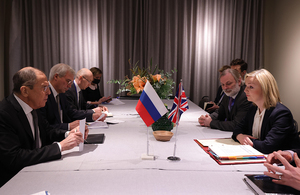SIA enforcement operations target Shropshire and Staffordshire venues, clubs and bars
Last Saturday evening (27 November), investigators from the Security Industry Authority (SIA) conducted enforcement operations in Telford and Shrewsbury and Wolverhampton. These were targeted operations to identify and disrupt the activities of unlicensed security operatives, who place the public at risk by working illegally.
SIA investigators inspected venues across Telford, Shrewsbury, and Wolverhampton. They spoke with venue managers, examined documentation, and interviewed and checked the licences of security operatives on duty that night. SIA investigators also inspected a business’s premises and conducted enquiries at a residential address.
The operation, supported by officers from the West Mercia Police also sought to gather intelligence on fraudulent activity such as bogus security companies, individuals operating without a licence, and signs of labour exploitation and modern-day slavery.
At the end of the operation, SIA officials identified seven offences under the Private Security Industry Act (PSIA) and potential offences under the Fraud Act.
- Four individuals were found to be working without a licence
- One security company was found to be supplying unlicensed operatives
- Two individuals were found to be breaking the conditions of their licence
One individual, though correctly licensed as a security guard, was found to be using a counterfeit door supervisor licence to work on the doors. He ran away as the SIA approached. Once the SIA has confirmed his identity, it will revoke the licence he currently holds.
SIA investigators will now follow up on the individuals found to be operating illegally and may revoke the licences they hold, where appropriate. The SIA may also conduct a criminal investigation and prosecute.
Commenting on the operations Pete Easterbrook, SIA Head of Criminal Investigations said:
The purpose of the SIA is to protect the public through effective regulation. Members of the public should be able to enjoy their nights out, confident that the venues they attend are secured by vetted, qualified and licensed individuals.
The vast majority of the private security industry take their obligations seriously and recognise the important role the private security industry plays in keeping the public safe. There are however a small number of individuals and businesses who show a complete disregard for regulation, and in doing so place the public at risk. Following Saturday’s operation, we will be scrutinising the activities of these individuals and businesses very closely. We will not hesitate to take swift and robust action against those fail to comply.
Mr Easterbrook added:
I would like to thank West Mercia Police for their support in this operation. Our close working relationship contributed to the successes on the night, and highlighted that some individuals who are of interest to our police partners are also of interest to the SIA.
Further information:
- The Security Industry Authority is the organisation responsible for regulating the private security industry in the United Kingdom, reporting to the Home Secretary under the terms of the Private Security Industry Act 2001. The SIA’s main duties are the compulsory licensing of individuals undertaking designated activities and managing the voluntary Approved Contractor Scheme.
- For further information about the Security Industry Authority visit www.gov.uk/sia. The SIA is also on Facebook (Security Industry Authority), LinkedIn and Twitter (SIAuk).
